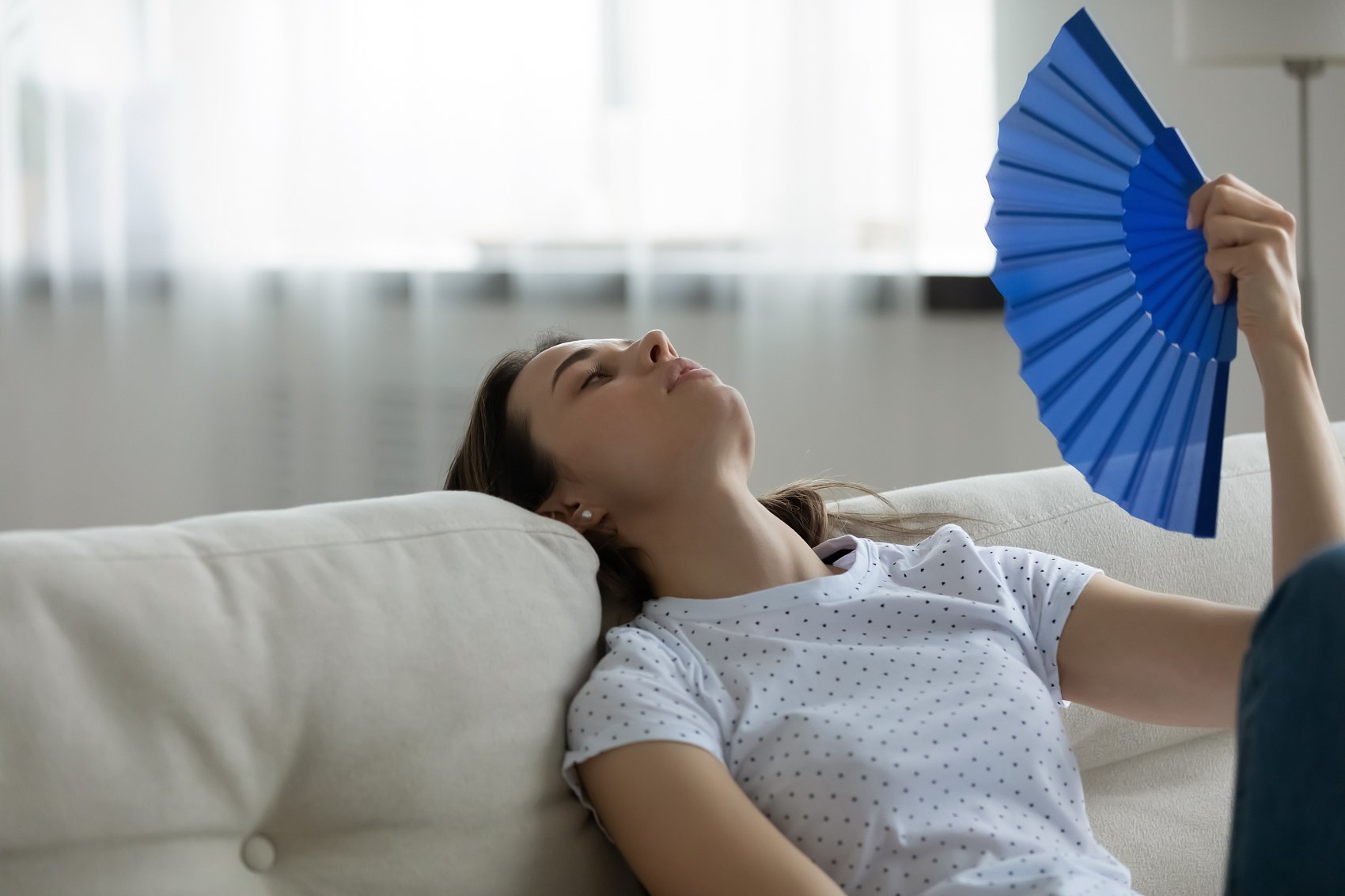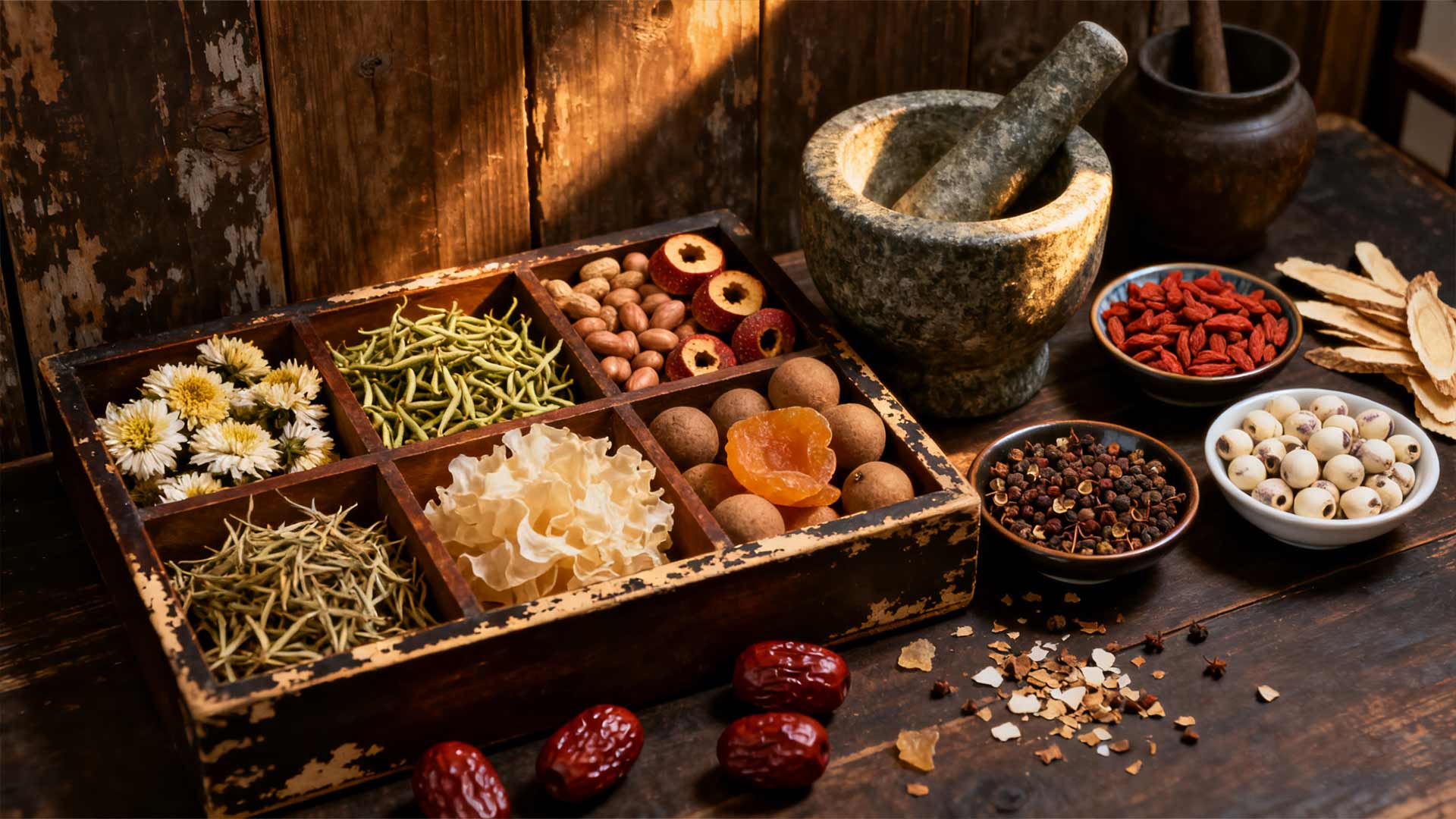When cicadas drone incessantly and waves of heat, heavy with humidity, wrap around you like invisible layers; when sweat trickles unnoticed and restlessness makes it hard to sit still – this is the unique taste of the Sanfu days (Dog Days). It is not ordinary summer heat, but the time when the Yang energy of summer reaches its peak, and dampness clings most stubbornly. Traditional Chinese Medicine (TCM) calls this “Long Summer” (Chang Xia). During this period, the body’s Yang energy floats near the surface, pores and meridians open wide, leaving the interior relatively deficient and cold. Improper care can easily allow cold and dampness to invade, laying the groundwork for illnesses in autumn and winter.
Understanding Sanfu: Aligning with the Season
“Fu” (伏) means that Yin energy is forced into hiding by the dominant Yang energy. Sanfu consists of three periods: Tou Fu (Initial Fu), Zhong Fu (Middle Fu), and Mo Fu (Final Fu). Their dates are calculated based on the traditional Chinese GanZhi calendar, typically falling between mid-July and late August – the hottest, most humid, and prolonged stretch of the year. The 2025 Sanfu periods are:
Tou Fu (Initial Fu): July 20 – July 29 (10 days)
Zhong Fu (Middle Fu): July 30 – August 8 (10 days)
Mo Fu (Final Fu): August 9 – August 18 (10 days)
The ancient saying goes: “Train during winter’s Sanjiu (three nines), nourish during summer’s Sanfu (three fus).” Proper care during this time allows one to harness the season’s power to expel lingering cold, nourish vital energy (Qi), and build a foundation for health in autumn and winter.
Core Principles of Sanfu Health Preservation: Clearing, Fortifying, and Promoting Flow
Avoid Heat and Dampness, Protect Yang as the Foundation:
Seek Coolness Wisely: Ventilate during cooler mornings and evenings. Close windows and doors during the midday heat, using fans or air conditioning (set no lower than 26°C / 79°F). Avoid direct cold drafts, especially on the neck, back, and abdomen. The ancient wisdom “a calm heart naturally feels cool” means reducing agitation to conserve Qi.
Seek Shade and Avoid Sun: Minimize going out between 10 am and 4 pm when the sun is strongest. If necessary, wear a wide-brimmed hat, use an umbrella, and choose lightweight, breathable, light-colored clothing.
Stay Dry: Change damp clothes promptly to keep skin dry, preventing heat rash/eczema and warding off dampness.
Warm Baths: Avoid cold showers immediately after heavy sweating. Lukewarm baths help pores open for heat dissipation, leaving you feeling refreshed afterward.
Dietary Adjustment: Clearing Heat, Nourishing Gently, Transforming Dampness:
Prioritize Clearing Heat and Promoting Fluids: Mung bean soup, sour plum drink, lemon water, watermelon (in moderation), winter melon, cucumber, luffa, and tomato are natural “coolants.” Teas with lotus leaf, mint, or honeysuckle also clear heat and refresh.
Strengthen Spleen and Remove Dampness: Coix seed (Job’s tears), adzuki beans, poria, white hyacinth bean, Chinese yam, and foxnut are “golden ingredients” for dispelling dampness and fortifying the spleen. A bowl of coix seed and adzuki bean porridge or Chinese yam and winter melon soup hydrates and nourishes.
Warm the Middle Burner (Spleen/Stomach): Despite the heat, protect the Yang energy of your digestive system. Add a few slices of ginger or a pinch of pepper to meals, especially cold dishes or in the morning, to warm the center and dispel cold, preventing cold from damaging the stomach. The folk saying “Eat radish in winter, ginger in summer” embodies this principle.
Light and Digestible is Key: Greasy, fried, and overly sweet foods burden the spleen/stomach and promote damp-heat. Opt for light, easily digestible foods like congee, soup noodles, and steamed dishes. Excessive raw fruits, cold salads, and icy drinks can damage Spleen Yang, leading to abdominal pain or diarrhea – moderation is crucial.
Regular Routine, Balanced Activity & Rest:
Sleep Later, Rise Earlier: Adapt to the long days by sleeping slightly later (before 11 pm) and rising early to enjoy the cool mornings. A short nap (around 30 minutes) at noon helps calm the mind and relieve fatigue.
Gentle Exercise, Avoid Profuse Sweating: Choose gentle, low-intensity, short-duration activities like walking, Tai Chi, Ba Duan Jin, or yoga during cool mornings or evenings. Exercise only until you break a light sweat; vigorous workouts deplete Qi and fluids. Rehydrate after exercise with warm salted water or weak tea – avoid large amounts of ice water immediately.
Calm the Mind and Nourish the Spirit: “Summer heat easily injures the Heart.” High temperatures can cause irritability. Calm your mind with soothing music, calligraphy, meditation, or quiet sitting to maintain emotional stability.
Harness the Season’s Power: Treating Winter Ailments in Summer:
Sanfu’s abundant Yang energy makes it the golden period for treating cold-natured conditions that worsen in winter (e.g., chronic cough, asthma, rhinitis, arthritis, weak digestion, menstrual cramps). TCM methods like “Sanfu medicinal patches” (acupoint application), moxibustion, or warming herbal formulas are used. They leverage the season’s Yang Qi to warm the meridians, expel deep-seated cold, dampness, and phlegm. Crucially, these therapies must be performed under the guidance of a qualified TCM practitioner, tailored to your specific constitution.
Sanfu health preservation is a practice of wisdom in harmony with nature. It involves seeking coolness amidst intense heat, striving for healthy function amidst pervasive dampness, and carefully nurturing the vital Yang energy within. As the ancients said, “The superior physician treats disease before it arises.” This summer dedication isn’t for immediate effect, but to build profound reserves of health for autumn and winter. Though Sanfu brings intense heat, with proper care, you can pass through summer peacefully. When the cool autumn breeze arrives, both body and mind will reap the rewards of your nurturing.



